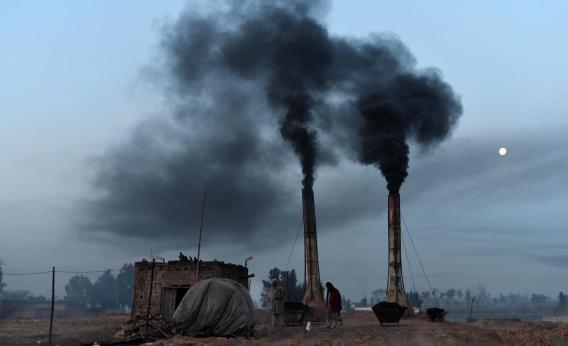I did a piece about how annoying the paperwork for getting even the simplest small-business license is, which prompted a lot of weird reactions from conservative readers, like “Obama lapdog Matt Yglesias has epiphany: Gee, it’s hard to start a small business in D.C.!” and various comments about how I’m reaping what I sow, and now I should understand why lots of people vote Republican.
This is something I think I actually understand very well. I voted for Republican Patrick Mara the last time he was on the ballot for a D.C. Council at-large seat, and I’ll probably vote for him again. I voted for Mitt Romney for governor in 2002. I would have voted for Michael Bloomberg in the 2005 or 2009 New York City mayoral races, and in general I think the conservative critique of municipal government in the United States has a lot of merit. Republicans might be interested in why someone like me—someone who sympathizes with many of their economic policy views—still hesitates to vote for their candidates for national office. One reason is that I tend to think conservatives place much too little emphasis on the rights and interests of religious and ethnic minority groups, gay people, and the like. Another reason is that conservatives have much too much affection for state-sponsored violence. In terms of economic policy, Republicans tend to deride the hugely successful practice of taking money from the rich and giving it to the poor. But even on the regulatory front, there are real shortcomings to the Republican approach.
The way I would put this is that the American economy is simultaneously overregulated and underregulated. It is much too difficult to get business and occupational licenses; there are excessive restrictions on the wholesaling and retailing of alcoholic beverages; exclusionary zoning codes cripple the economy; and I’m sure there are more problems than I’m even aware of.
At the same time, it continues to be the case that even if you ignore climate change, there are huge problematic environmental externalities involved in the energy production and industrial sectors of the economy. And you shouldn’t ignore climate change! We are much too lax about what firms are allowed to dump into the air. On the financial side, too, it’s become clear that there are really big problems with bank supervision. The existence of bad rent-seeking rules around who’s allowed to cut hair is not a good justification for the absence of rules around banks’ ability to issue no-doc liar’s loans. The fact that it’s too much of a pain in the ass to get a building permit is not a good justification for making it easier to poison children’s brains with mercury. Now obviously all these rules are incredibly annoying. I am really glad, personally, that I don’t need to take any time or effort to comply with the Environmental Protection Agency’s new mercury emissions rules. But at the same time, it ought to be a pain in the ass to put extra mercury into the air. We don’t want too much mercury! We don’t want too much bank leverage!
Business licensing is different. “This city has too many restaurants to choose from” is not a real public policy problem—it’s only a problem for incumbent restaurateurs who don’t want to face competition. But in other fields of endeavor—telecommunications, say—the absence of regulations can lead to an uncompetitive outcome. Partisan politics is pretty simple, since there are only two parties to choose from. But the underlying structure of reality is quite complicated, and it’s worth your time to try to understand the issues.
